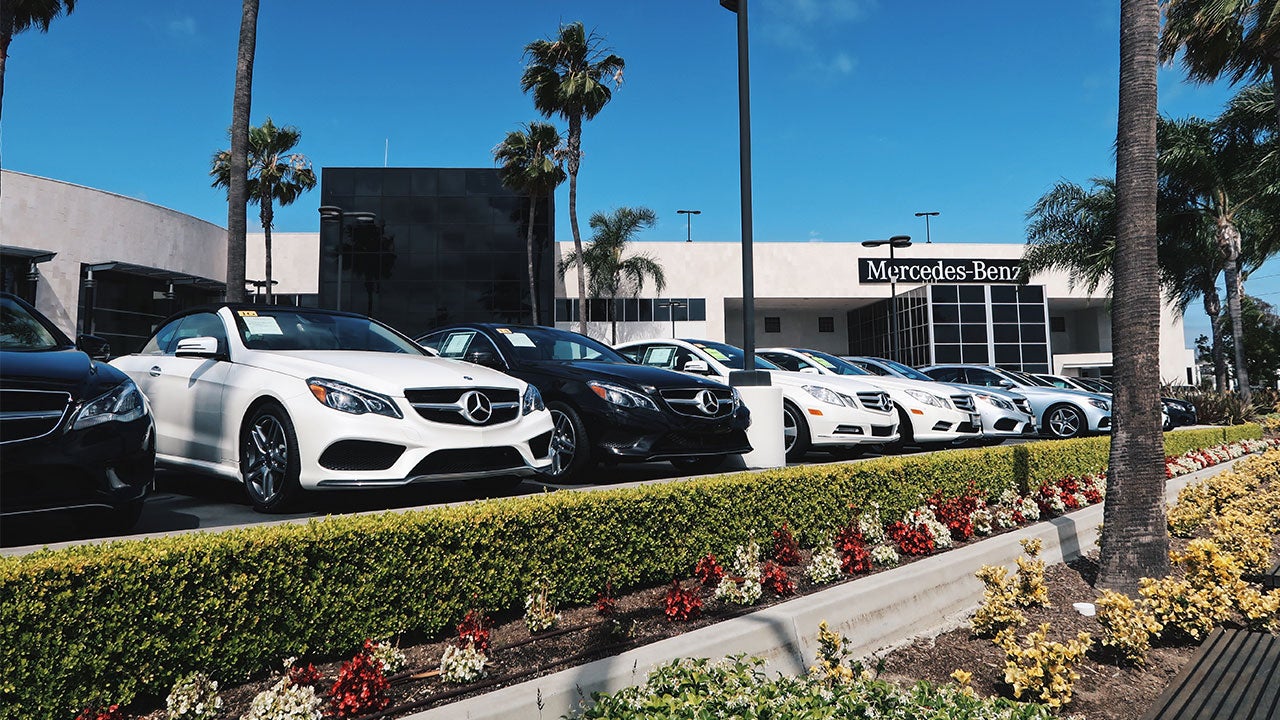Where to buy a car without haggling

Key takeaways
- To avoid haggling, find ways to buy a car that skip the traditional dealership model, such as purchasing the car online through Carvana or eBay.
- Try joining a credit union, AAA or clubs like Costco. These offer discounts on cars, which could help you save money.
- You can also find a car broker who will do the negotiations and search for you.
Buying a car can be a daunting process, particularly if you don’t want to try and bargain for a better price or extra amenities. A 2024 study conducted by KPA found that around a third of Americans felt they experienced dishonest sales practices at the dealership, and 76 percent don’t trust dealerships to be honest about pricing.
Instead of confronting that mistrust and putting together a negotiating strategy, you can take a more hassle-free approach to car buying with dealerships that don’t force you to haggle.
What is no-haggle car buying?
No-haggle car buying, also known as no-hassle car buying, is an approach to buying a car that does not require negotiation. Dealerships that offer no-haggle car buying often swap the ability to get a better deal with the assurance that you’ll be paying a fair price for the vehicle you purchase.
You can always make sure the sale price is fair with resources like Kelley Blue Book and Edmunds. Although the no-haggle approach may or may not save you money, it generally saves time and effort.
5 roads to no-hassle car buying
You have plenty of choices when buying a new car without haggling. Working with an online dealership and joining a club or credit union with discounts are two common options. And if you have done your research and feel you are being offered a fair deal, you can simply skip haggling and accept the offered price at a traditional dealership.
1. Buy it online
If you don’t want to talk to someone when buying a new car, online sellers have you covered. Check out a no-haggle buying site, like Carvana, or use a car-buying app. These sites operate on a what-you-see-is-what-you’ll-pay model. You can also get a trade-in estimate without talking to anyone. Plus, if you find a car you love, you can likely get it delivered.
When buying a car online, study the deal’s terms. Since you aren’t taking a test drive, it’s important to understand your options for returning it if you have regrets.
While there are many perks to purchasing your car online, remember that this is a big purchase you’re making sight-unseen. Watch for additional fees, including a delivery or destination fee for the car to get to you.
2. Go to no-haggle car dealerships
Some dealers exclusively offer no-haggle pricing. You won’t be able to negotiate prices or features, but in general, vehicles are sold at a standard market value.
- Enterprise sells used cars that others have rented and uses a no-haggle pricing structure.
- Carvana is a no-haggle used car buying site that ships across the U.S. and has a generous seven-day return policy.
- Another used car dealer, CarMax has an exceptionally long 30-day return period and lots across the country.
- AutoNation — which has more than 300 locations in 20 states — is also an option if you’re buying a used car. It has a fixed, no-haggle pricing model.
In addition to these options, you may also want to explore a car-buying app, which can help you buy a used car or sell your current vehicle from the comfort of your home.
You may still expect to pay a higher-than-sticker price at one of these no-haggle dealerships, especially once fees are factored in. Though some fees are negotiable, you’re stuck with them if you don’t negotiate.
3. Join a club
Some memberships and clubs also have car-buying programs or built-in discounts. If you’re an AAA member, the club’s Auto Buying service offers member-only pricing. Costco also has prearranged pricing for members. Occasional limited-time incentives can help you save more without haggling.
Credit unions like Navy Federal Credit Union and PenFed Credit Union offer car-buying services with bonus cash offers for members and upfront, no-haggle pricing.
When you purchase through a club, you’ll need to trust the price you are being offered is competitive. “Exclusive” deals may or may not be worth your effort, so compare carefully before committing to one of these clubs just for one purchase.
4. Hire a car broker
There’s another option to avoid haggling when buying a car: Let someone else do that work for you. Car brokers, also known as car concierges or car-buying services, search and negotiate on your behalf. You give them a budget and tell them what you’re looking for, and they come back to you with options.
They may also help negotiate a trade-in value for your existing car. You’ll have to pay the broker a fee for their services, but that expense — likely a few hundred bucks — can pay off by saving you time and money.
Simply put, a car broker is not you. You will need to communicate your expectations carefully. Once they finalize a deal on your behalf, you will most likely be committed to the terms and price they’ve agreed upon.
5. Use a car auction site
Auction sites like eBay Motors enable you to bid on a car and try to secure a low price without haggling with the seller. Listings include everything from classic vintage cars to brand-new models. While you may need to travel to pick up the car, this can be a great way to get a car without negotiating.
Cars on auction sites are frequently salvaged, rebuilt, or repossessed, and dealers may purchase them in lots rather than individually. Some auction sites may allow you to bypass bidding altogether if you agree on a “buy it now” price or similar listed price.
It can be hard to secure financing for a car you’re purchasing at auction — you’ll likely need to fund your purchase upfront. Remember that you’ll probably need to pick up your auction winnings from the seller or negotiate for shipping/delivery.
Bottom line
The traditional car-buying route can mean dealing with pushy sales representatives. It doesn’t have to be that way. There are many routes to no-hassle car buying, eliminating the obstacles between your hands and the steering wheel.
Even if you choose a no-haggle option to buy, there is still one area where you should compare multiple offers: your car loan. Browse auto loan rates for a competitive financing offer.
You may also like

0% APR car deals: Are they worth it?

How to negotiate car price for the best deal





